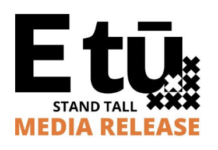For generations, farming has been the backbone of our economy and well-being. However, this has come at a cost to our rivers, air, and climate. Biodiversity underpins a healthy environment, and unfortunately, our Aotearoa’s biodiversity is in crisis. 76% of our fresh water fish are threatened with extinction, two-thirds of our rivers are unswimmable and high in nitrates, only 10% of our wetlands remain, farm emissions are not consistently managed, and more than 4000 of our native species are endangered.
New Zealand spends more of Earth’s natural resources than it can regenerate in a single year. In fact, in order to keep up with current demand, New Zealand would need 1.7 Earths. No business or government could survive operating in this kind of deficit. Neither can nature.
This isn’t a political issue, nor a blame game. It’s about how we work together to support each other to future proof our economy, while protecting and enhancing our natural environment.
Right now, we have choices to help find the best way forward to ensure we are living within our ecological resources but this window is closing. If we don’t change within this decade, Earth will force our hand and these choices will be gone. Farmers are already feeling the impacts of climate change and biodiversity loss. From extreme weather events, to high nitrates in our waterways, and depleted land, they are among the first to feel the repercussions of our actions and growing compliance costs.
However, there some farmers within Aotearoa who see this as an opportunity and are now practicing regenerative farming, which is being ever demanded by consumers, and transitioning to a more sustainable land use.
It’s not just up to farmers to solve our biodiversity crisis. It’s up to all of us and we each have a role to play. WWF-New Zealand is supportive of the Interim Climate Change Commission and the Zero Carbon Bill which received support from both sides of the House. WWF believes we need to help farmers by developing practical based solution tools. We also want to encourage and support farming practices that help restore our waterways, regenerate our soils and biodiversity, and through sound scientific rigour measure and reduce emissions on farms.
Together, it’s possible to live in harmony with nature to ensure a future for all of us.





